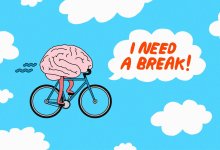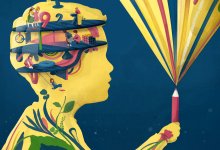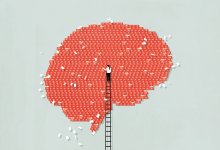Brain-Based Learning
Explore the mysteries of the human brain! Find out how discoveries in neuroscience provide insights into how students learn—and how to engage them in the classroom.
Using Theater Games to Build Students’ Working Memory
By holding onto the information necessary to play certain games, students develop skills that lead to academic success.5 Popular Education Beliefs That Aren’t Backed by Research
Making adjustments to these common misconceptions can turn dubious strategies into productive lessons, the research suggests.6.2kJump-Starting Academic Learning With Movement and Dance
The benefits of movement in the classroom aren’t limited to younger students. Pairing new words and concepts with gestures or dance moves locks in understanding—and active brain breaks prime students to learn even more.13.7kWhy Ages 2-7 Matter So Much for Brain Development
Rich experiences—from play to the arts and relationships—fundamentally shape a young child’s development.124.6k7 Strategies to Help Overwhelmed Students
Some students develop anxiety about assignments, but there are ways teachers can help them cope with these feelings.717Teach Kids When They’re Ready
A new book for parents on developing their kids’ sense of autonomy has some useful insights for teachers as well.106.4kActivating Learning by Milling to Music
When students pretend they’re at a fancy party making small talk, a simple brainstorm for writing ideas becomes more lively, more cooperative—and more effective.15.3kUsing Movement to Teach Vocabulary
When students explore new words through movement, they understand them better, retain them longer, and feel more empowered to use them.15.4kThe Powerful Effects of Drawing on Learning
The science is clear: Drawing beats out reading and writing to help students remember concepts.66.9k17 Brain Breaks Tailored for High Schoolers
As high school students navigate more rigorous academic tasks and denser curricular material, the occasional 3-to-5-minute break delivers a wide range of benefits.7.2k5 Research-Backed Studying Techniques
Teachers can guide students to avoid ineffective studying habits in favor of ones that will increase their learning outcomes.53.9k3 Common Myths About Learning—and What Teachers Can Do Instead
With a solid understanding of how people process information, teachers can use evidence-based strategies to guide student learning.7.9k6 Ways to Capture Students’ Attention
Teachers can use insights from neuroscience to help ensure that learners stay engaged during class and are more likely to retain information.2.2kMotivating Teens With Classroom Competitions
Making games a regular part of class can get even the coolest high school students engaged in the content—and help them recall key concepts and vocabulary.245











